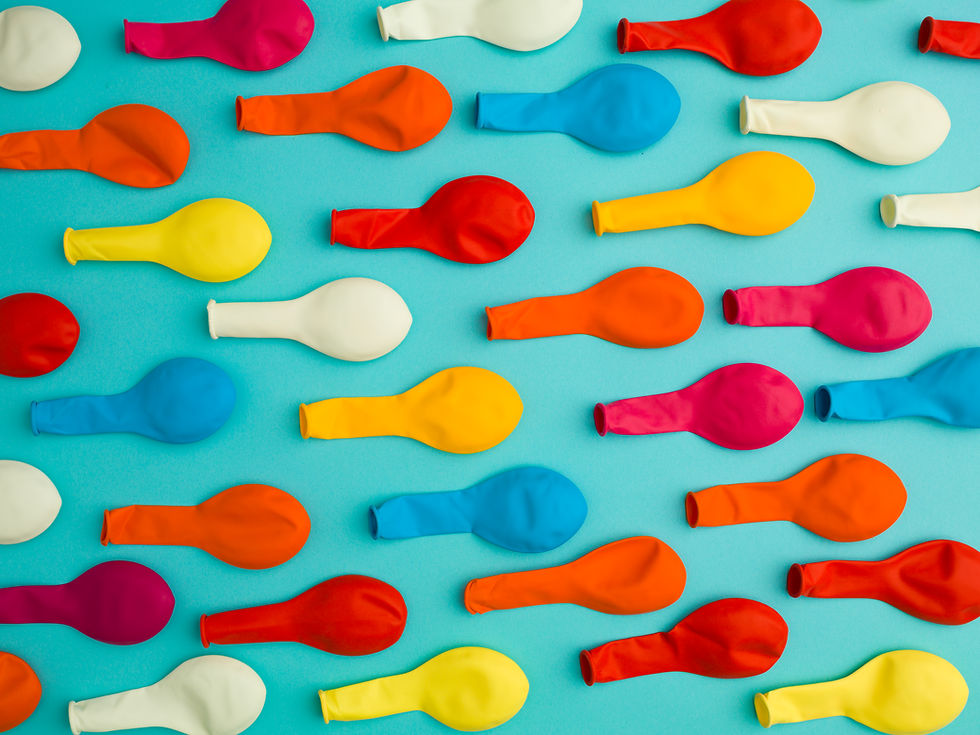Low Ovarian Reserve & Fertility Acupuncture
- Gulf Coast Acupuncture and Fertility

- Jul 30, 2021
- 3 min read

Low Ovarian Reserve results when there is an insufficient number of viable eggs (poor egg quality) in the ovaries to get pregnant. Ovarian reserve decline is individual and varies from woman to woman. Its progression typically accelerates 10-15 years before menopause, which is why fertility at 35 and older might be compromised for some women. Other factors can also contribute to ovulatory abnormalities and speed up the decline in ovarian reserve, including premature ovarian failure, premature ovarian aging, chemo- or radiotherapy, and more. Since only one egg is released per menstrual cycle, if that egg has chromosomal abnormalities, it may fail to be fertilized or implanted in the uterine wall. If it does proceed past implantation, these degenerative changes in the DNA might lead to miscarriages or genetic disorders in the fetus. Low ovarian reserve can also decrease the success rates of in vitro fertilization (IVF). While there are no egg quality tests available to date, various diagnostics tests can estimate their quantity. They only provide an estimate because the exact number is impossible to be determined. Anti-Müllerian Hormones (AMH). AMH is the preferred test for diagnosing low ovarian reserve. AMH is a protein hormone that is produced by ovarian follicles as they develop. Normal AMH range between 1.0 - 4.0 ng/mL. Low egg count is indicated by results lower than 1.0 ng/mL. Day 3 FSH. The levels of follicle-stimulating hormone on the 3rd day of the cycle should be low, between 5-9 mlU/mL. FSH results of 13 mlU/mL and above indicate diminished ovarian reserve. Estradiol. This form of estrogen should be high in the first part of the cycle as it is produced by maturing follicles. Levels below 40 pg/mL signal low ovarian reserve. Transvaginal Ultrasound Antral Follicle Count. This test evaluates the number of follicles in the ovaries in which eggs mature. Although a few hundred are selected each cycle, only a small portion grows visible on an ultrasound. There should be 10-20 follicles; less than eight follicles signify low ovarian reserve. The age-related decline in the number and quality of eggs cannot be stopped nor improved since hormones drive the entire reproductive system; ensuring hormonal balance is key to maintaining healthy eggs and regular ovulation. Consider the following approaches: Following a fertility diet to improve egg quality can help prevent hormonal and nutritional deficits, thus promoting healthy menstruation and ovulation. A diet can help achieve a normal weight along with moderate fertility exercise and reduce the negative effect of an abnormal body mass index (BMI) on egg quality and fertility. A nutritious diet should be balanced with key macronutrients, namely complex carbohydrates, healthy fats, and lean protein, preferably plant-based. A woman should also opt for ovulation-friendly full-fat dairy and phytoestrogenic foods, such as flaxseed, lentils, or broccoli, to support hormonal equilibrium. Helping my patients conceive and bring healthy babies to term over the last 18 years has been incredibly rewarding. Fertility has become one of my specialties not only because of my growing experience in the field but also because infertility has become more common over time. Low ovarian reserve, in particular, has become more prevalent in recent years. Ten years ago, my patients experiencing low ovarian reserve were usually age 40 or older. Today, it's not uncommon for patients in their mid 20's to 30's to experience low ovarian reserve. Many patients are waiting longer to have children as well. TCM treatment for ovarian function has been found effective in clinical studies and in my practice. TCM considers the leading cause of ovarian reserve dysfunction to be kidney deficiency and blood stasis. Kidney deficiency often presents as dysfunction in the liver, heart, and spleen as well. Treatment is to invigorate the kidney, fill the vital essence, tonify the blood, and regulate menstruation. I use a combination of acupuncture and herbs in my fertility practice. In the treatment of fertility, acupuncture is most effective for stress reduction, menstrual cycle regulation, ovulation induction, and in vitro fertilization (IVF) support. I find that herbs are most effective for restoring or improving ovarian reserve, constitutional balance, glandular function, and egg quality. I am a Certified Fertility Acupuncture Specialist and have studied Western medicine, Eastern medicine, and Bio-Medical. We are accepting new patients, and we look forward to helping you on your journey to parenthood. (850)331-9991






Comments